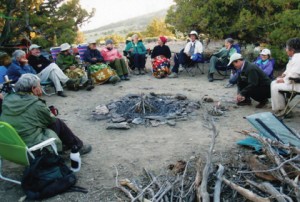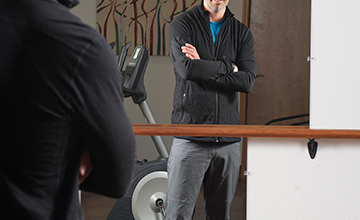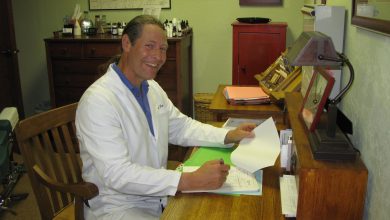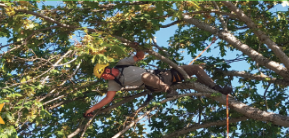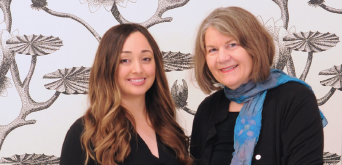Anne Stine, MA, MFT – Wilderness Rites, LLC
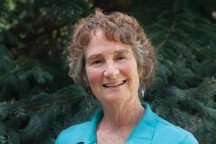 Anne Stine, MA, MFT, is the founder of Wilderness Rites, LLC www.wildernessrites.com, licensed marriage and family counselor in Ca. an ecopsychologist and rites of passage guide. Anne’s programs and services over the past 30 years include an ecotherapy and depth counseling practice; wilderness rites of passage and earth-based healing practices; seminars and trainings in wilderness guiding; mentoring, teaching, and guiding in earth rites and counseling that includes our relationship with the natural environment. She has lived in the Rogue Valley for 8 years. We decided to ask her to share more about the work with which she is involved.
Anne Stine, MA, MFT, is the founder of Wilderness Rites, LLC www.wildernessrites.com, licensed marriage and family counselor in Ca. an ecopsychologist and rites of passage guide. Anne’s programs and services over the past 30 years include an ecotherapy and depth counseling practice; wilderness rites of passage and earth-based healing practices; seminars and trainings in wilderness guiding; mentoring, teaching, and guiding in earth rites and counseling that includes our relationship with the natural environment. She has lived in the Rogue Valley for 8 years. We decided to ask her to share more about the work with which she is involved.
Anne, Thanks for taking the time to do this interview with me today. As a mental health professional you have taken a different approach to helping people. An approach which involves creating a direct and intimate connection with the natural world. Can you share a little bit about why you choose to work with mental health in nature rather than indoors and give us a little background on the state of mental health work?
In the late 1980s I took part in my first vision fast/quest in a remote part of Death Valley. I had been a practicing psychotherapist for some years at that point, and was feeling that something was missing in my work. The impact in my life of that ancient earth-based practice was life changing for me on all levels. When I returned to my familiar life, I could no longer live and work as I had before. What was clear to me was that human health and wholeness was absolutely interconnected with the larger earth community. That our sense of wholeness, purpose, and fulfillment was interdependent with our relationship with other life forms, not just human. My life and work turned in that direction from then on. I began to incorporate earth-based practices and rites of passage into my work as a therapist. Ecopsychology, the field of psychology that recognizes the importance of the human-earth relationship was just beginning back then, and I found myself involved in the excitement of exploring this field in new, old and innovative ways, in groups, with individuals, in town and out on the land and in wilderness settings. The context of healing and wholeness within the larger earth community was born. My clients were very inspired by this new dimension to our work, and my trips, seminars, teachings and mentoring programs were well received. I even had the opportunity to teach courses in applied wilderness ecopsychology in several graduate programs in psychology.
What are rites of passage and what role have they played in traditional society and culture?
Earth-based rites of passage are traditional ceremonies of passage from one life station or situation to another, i.e. enactments of signficant life changes. They have been recorded as far back as 50,000 yrs. ago in aboriginal cultures which hold the deepest collective memory of our race. Our earth-based ancestors in all cultures knew that to clearly define life transitions in meaningful ways was essential to the health and balance of individual and cultural/tribal life with the natural world. Without acknowledging growth and change, life would literally not continue. It was also during these rites that individuals were celebrated and empowered with their deep life purpose, their particular gifts and skills, and returned to embody and live out their place with their people. Today we have lost contact with these rites and many people are suffering from incomplete transitions, losing their ways of moving through life changes, as well as their interconnectedness with the natural world.
Although these rites are often referred these days as ‘vision quests’ I prefer to use the cross-cultural term ‘rite of passage’, as the term places this ancient rite in its proper context, which is something that belongs to all cultures throughout time. Earth-based life was lived in interdependence with the land upon which the people lived, and this does not belong to any one tradition in particular. The ceremonies and rites that I offer are pan-cultural in this sense, and anyone from any tradition, belief, culture, background, etc . can participate and find a meaningful place for him/herself within that. It belongs to all of us and comes from our ancestors.
What changes does one often experience after passing through a rite of passage?
People are ‘called’ to participate in a wilderness rite of passage. This ‘call’ takes an individual out of her/his ordinary life into the sacred. There is always some kind of change or transition occurring, such as a relationship, illness, work, stage of life (ie young adulthood, eldering, retirement, etc.), or perhaps the leaving behind of a certain way of life or belief system. In the past 22 years I have seen many many individuals go through this passage, which involves the shedding of something that is over in their life, a facing of the change or transition, and reemerging into the new life, literally a kind of renewal or rebirth. Specific practices such as solitude, exposure to the natural world and fasting (which is optional) help to enact an intentional transformational experience, where in one leaves behind the old life and reassembles the elements of that life into something new and meaningful. The changes are profound, celebratory, empowering and lasting. The individual has lived them in their body, on the land, it becomes part of who they are.
The final stage of this rite is to bring it home to one’s life, family, community and work. Black Elk said ‘a man or women who has a vision is not able to use the power of it until after s/he has performed the vision on earth for the people to see. (Black Elk Speaks) ‘Vision’ in this context refers to one’s true experience, not bright lights and images. What has the individual truly lived, what is the gift that s/he brings home, how will they live it so it is of benefit to all parts of their life. Without this enactment in a meaningful way back in their lives and communities, it has no lasting value. We go out on the earth to perform these ancient rites in order to return to our people and give our gifts, so that the human-nature relationship can be constantly restored to balance and that the communities can be nurtured and guided by the deep life purpose and gifts of each individual. This is without a doubt the most challenging part of the whole experience. Everything that has gone before is mere preparation for incorporating the experience into daily life. I often offer ongoing support and guidance for those that would like it.
When I created LocalsGuide I did so with the intent of wanting to give individuals an opportunity of sharing their voice and story with the community. I would love for you to talk about the importance of Story… what it is and the role it plays.
Approximately 97% of all human knowledge and wisdom has been transmitted through oral tradition of some kind, ie verbal, musical, movement, etc. Books and other modern technology as a means of communicating is relatively very new in our history. The sharing of one’s genuine story is essential to the fulfillment of traditional rites of passage. Storytelling is a communal action. We don’t know our story until we tell it and are able to draw our own understanding of what has happened. It’s a reflective process and it needs to be received without judgement and within an environment of deep compassionate listening. Individuals returning from their passage out on the earth tell their story to the ‘council of elders’, that is the ones who have also been through the experience. The ‘telling’ of the story and witnessed open-heartedly by others is considered essential for it to be lived out in one’s life.
Indigeneous wisdom teaches that we are each born with a true or ‘deep’ story ‘written’ within us, Our purpose here is the embodiment of that true story. I have so often seen in my work that people have lost their story, that they have obeyed and been the recipients of stories that don’t belong to them (ie through media, home and school life, and other contexts that insist that we be or are this or that, oftentimes under the threat of serious harm to our life). If we don’t know our own story, it will be written for us in acts of betrayal. The healing journey and rites of passage are dedicated to retrieval of that authentic story of ‘who am I’, ‘what is my purpose’, ‘who are my people’ and ‘what is my place’? Our failure to submit to our true life story is a kind of annihilation and people everywhere are suffering from this and longing to find their way home. To go out on to the earth, with deep intention, skillful preparation (on the part of the guides and the individuals), to engage in the ancient ceremony to mark change, to enter into deep communion with the earth life and return home to embody this experience, is a very powerful and reliable way of retrieving the true self story. Our relationship with the earth ourself provides the wisdom and guidance. If conditions are right for us, just like with plants and other life forms, we will flourish. Experiencing our relationship with a larger life force is vital for us. From a mental (emotional and spiritual) health point of view this relationship is essential.
You are also planning an event this coming summer for members of this community. Can you share a little bit more about this?
I am offering two wilderness rites of passage journeys this summer. One in July (July 15-25)is for women who are called to empower themselves at some stage of our eldering years. http://www.wildernessrites.com/elderpassage.html This ‘elder passage wilderness quest’ will be the 8th year that this is offered and women come from all over the world to participate in this experience which takes place in the high mountains of California.
In addition I am offering a wilderness quest from August 28-Sept. 5 for women and men from southern Oregon only http://www.wildernessrites.com/monobasin.html. When I lived in the Bay Area we created a tremendous community that supported this ancient rite, as our ancestors used to. I would like to do that here as well. We will gather both before and after the wilderness phase of this trip and inspire and support the departure as well as receive people back when they return to the Rogue Valley. Community events and ceremonies will be available in ways that are meaningful to each participant. I also have a counseling and mentoring practice which I have had now for over 30 years. My interest in the human-nature relationship is part of this practice when it seems appropriate. I offer a broad scale of fees to make it available to anyone who is interested in either counseling/mentoring or the rites of passage programs.
Can you discuss a central thread to your life,something which has continually played a role in your life and how it connects to the work you do today?
A central thread in my life is relationship, within and between all beings and life forms. The ancient practice of council or circle is tremendously empowering in this, as it leaves nothing out and embraces all life to take a place on the ‘rim of the wheel’. I also feel strongly about deep listening. The Quakers have a saying that ‘to listen another person into self disclosure is the greatest gift one can give another’. We listen each other into who we are. In the presence of genuine listening and acceptance, we are often startled into what we discover about who we are and why we are here. It also connects us deeply with each other as humans and with the larger earth community. When we see a beautiful forest, we are also being seen by that forest. The unity within the diversity of life is really one ongoing relationship, one complete and reciprocal act.
Anne’s practice and programs are available in the valley. To learn more visit: www.wildernessrites.com astine@wildernessrites.com

